17 Essential Iceland Travel Tips to Know Before You Go
Planning a great trip to Iceland is all about being prepared.
The more prepared you are, the more fun you’ll have!
We’ve compiled this list of 17 Iceland travel tips to help you have a fantastic time travelling through Iceland.
Iceland is a unique country. There’s no place like it, from its vast natural landscapes to the people that call it home.
Here are our best Iceland travel tips to help you make the most of your adventure.
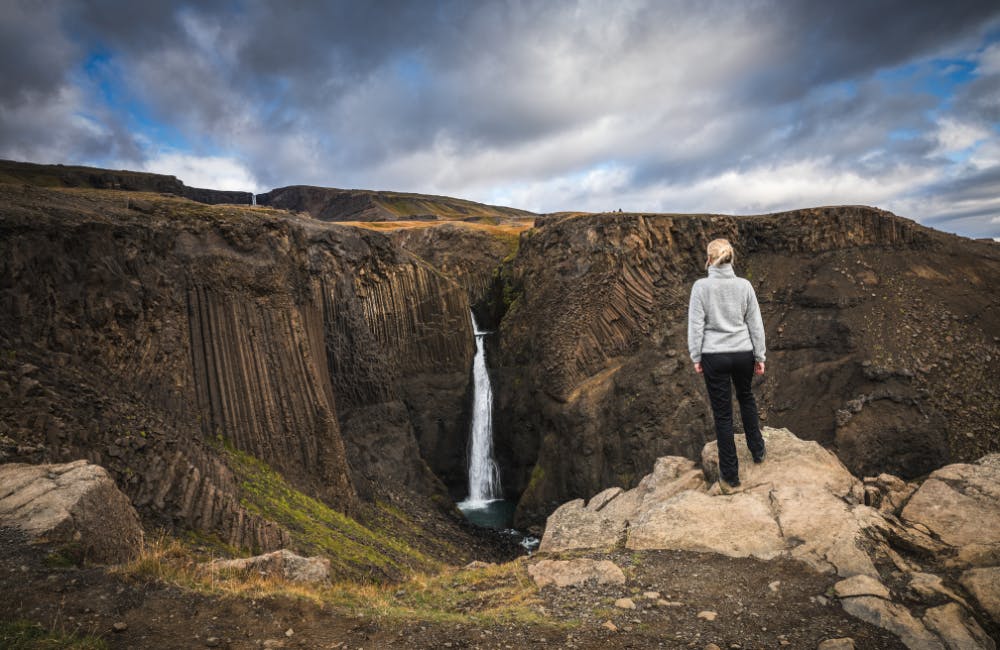
1. Be Prepared for the Weather
You can’t mention Iceland travel tips without addressing the country’s biggest topic of conversation: the weather.
Icelandic weather is notoriously unpredictable, and many travellers to Iceland experience all four seasons in a single day.
While you can’t fully prepare for the weather in Iceland (as you never know what’s around the corner), you should pack for all scenarios.
We recommend always dressing in layers to quickly adapt to changing weather conditions.
Wherever you go, pack waterproof and windproof outerwear and warm thermal layers.
Sturdy hiking boots are essential for exploring Iceland’s rugged terrain.
Even in summer, temperatures can drop suddenly, so always have a hat and gloves on hand.
Very importantly, constantly monitor the weather forecasts and road conditions, especially if you plan to travel to remote areas.
Storms and snow can come out of nowhere, often blocking roads or creating dangerous driving conditions.
The official Vedur website is the best place to access up-to-date information.
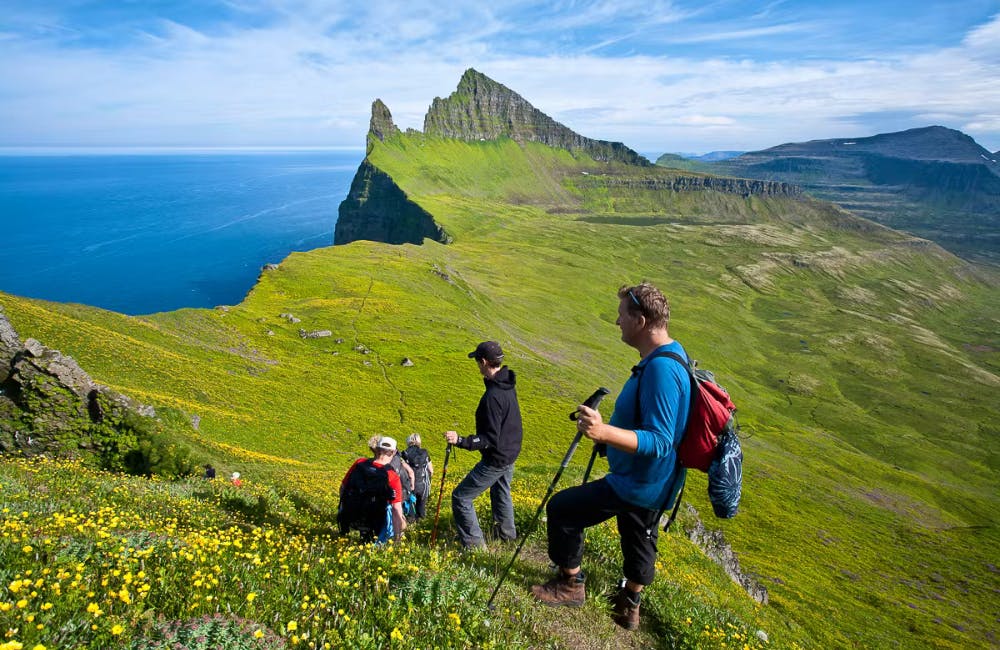
2. Take a Guided Tour
Many people travel through Iceland independently. Solo travel is great, but it can also limit your experiences.
If you want to see the best parts of Iceland, you’ll want to go on an Iceland guided tour.
Guided tours are essential for accessing remote areas of Iceland (like the West Fjords region) or specialised activities like glacier hiking.
But wait. Why go on a guided tour in Iceland?
First, it’s a lot easier. Your tour guide arranges transport, transfers, permits, and any gear you need. You can arrive in Iceland and get straight to the adventure!
Second, you get to tap into expert local knowledge.
Tour guides know all the best places in Iceland, and they help you have a memorable experience here.
Whether that means teaching you about the area’s history, showing you secret beaches, or helping you find hard-to-spot wildlife, your adventures in Iceland will be so much more fulfilling with a tour guide.
Finally, you’ll have more fun.
Guided tours often have a social element, allowing you to meet other like-minded travellers and share unforgettable experiences.
Beyond all the popular tourist attractions and tours in Iceland, here are three guided adventures we’d recommend for an extraordinary experience:
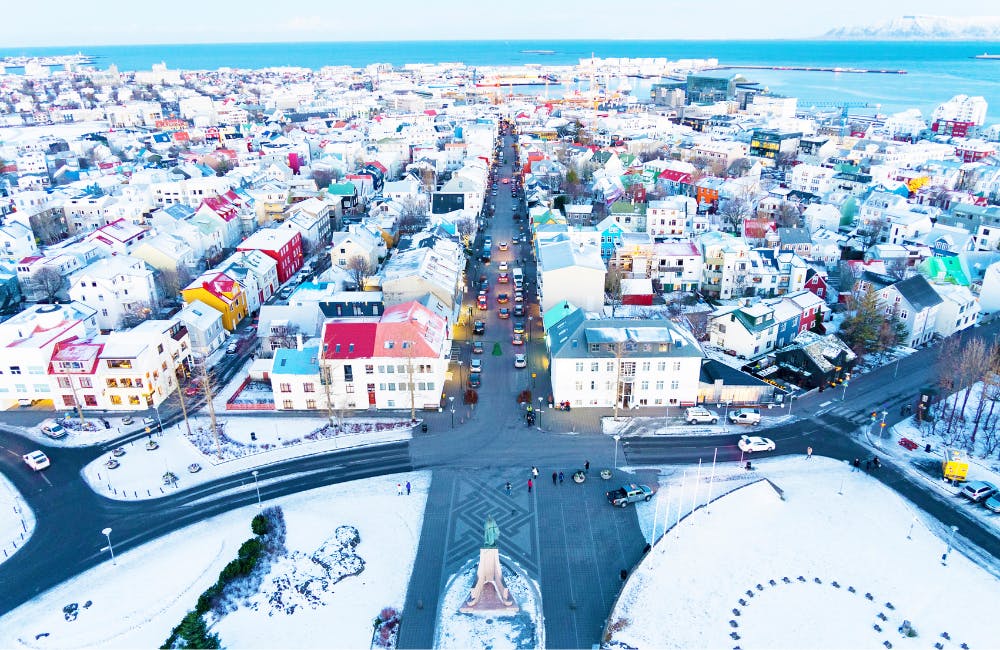
3. Get to Know the Locals
Icelanders are known for their warmth and friendliness and are always ready to help a traveller in need.
Take time to connect with the locals.
Don’t hesitate to talk with a local - you might get invited to a family dinner or learn about a hidden gem off the beaten path.
Chatting with locals can give you unique insights into Icelandic culture and society. They might share stories about Icelandic folklore or tell you the best spots to see the Northern Lights.
English is widely spoken in Iceland, so communication is usually easy.

4. Rent a Car and Customise Your Trip
Taking a guided tour is one of our top Iceland travel tips. However, between tours, we also recommend renting a car and exploring on your own.
Renting a car gives you unparalleled freedom to explore the country at your own pace on an Iceland road trip.
The Ring Road, which circles the island, is a popular route to see many of Iceland’s top attractions. It’s easy to navigate, but don’t be afraid to take detours to find the real hidden magic of Iceland.
The Snaefellsnes Peninsula, known as “Iceland in Miniature” for its diverse landscapes, and the remote Westfjords, with their dramatic fjords and quiet fishing villages, are worth exploring.
Renting a car also allows you to enjoy the best weather conditions. Just be aware of Iceland’s road rules and drive safely, especially if you’re travelling in winter.
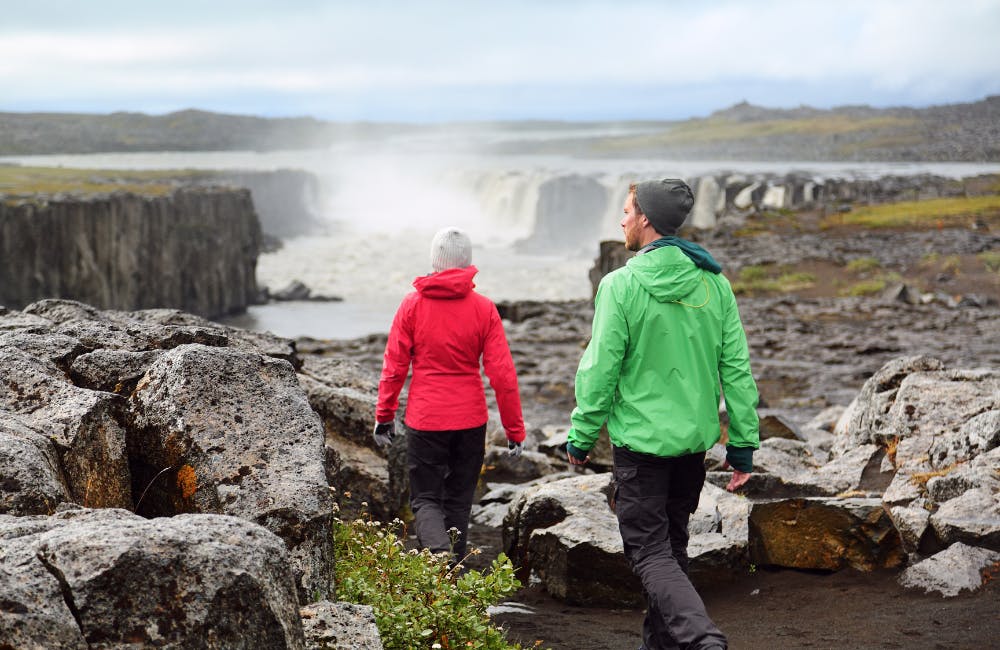
5. Explore Off the Beaten Path
If you have your own car in Iceland, you must embrace a sense of adventure.
While popular tourist spots like the Golden Circle and Blue Lagoon are must-sees, don’t miss the chance to explore Iceland’s lesser-known regions. This is where you’ll get to witness the raw beauty that Iceland is so famous for.
If you’d like to see fjords in Iceland, the Eastfjords and Westfjords offer stunning, untouched landscapes with fewer tourists.
These areas are perfect for anyone seeking solitude and a deeper connection with nature.
The Icelandic Highlands, covering more than half of the country, are another great option for adventurers.
Home to some of Iceland’s most dramatic landscapes, the Highlands offer some of the best chances to go hiking in Iceland.
These parts of Iceland may be unique, but they can be tricky to navigate if you’re not a local. That’s why we recommend joining a guided tour.
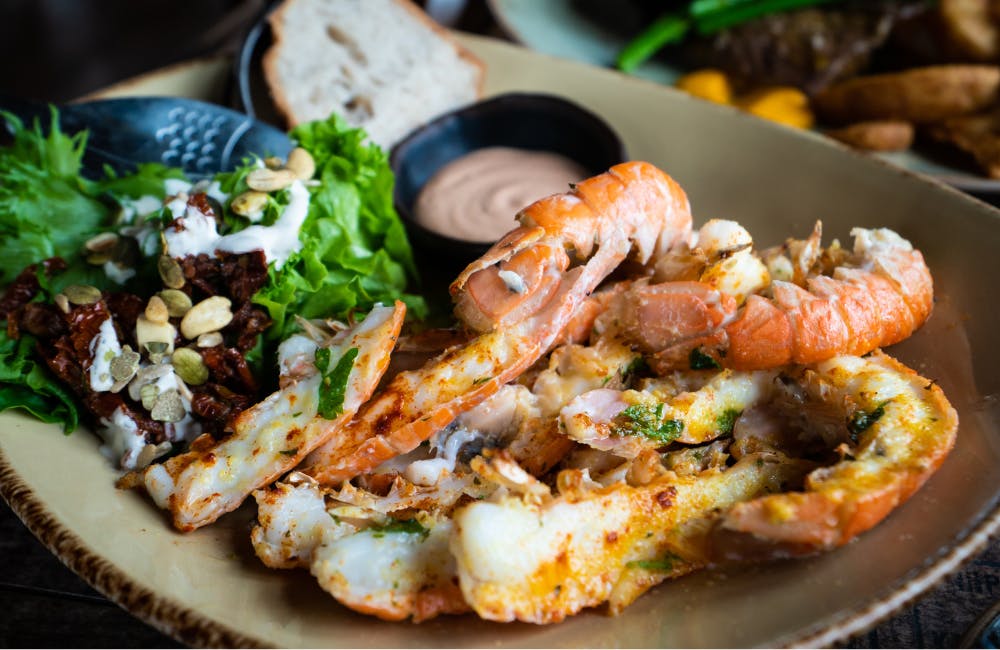
6. Go Self-Catering and Cook Your Own Food
Eating out in Iceland can be expensive, so consider booking self-catering accommodation to save money.
Most accommodation options in Iceland, including hostels, guesthouses, and campsites, provide kitchen facilities. Try Icelandic ingredients like fresh fish, lamb, and skyr, a traditional dairy product.
Tap water in Iceland is also some of the purest in the world, so there’s no need to buy bottled water.
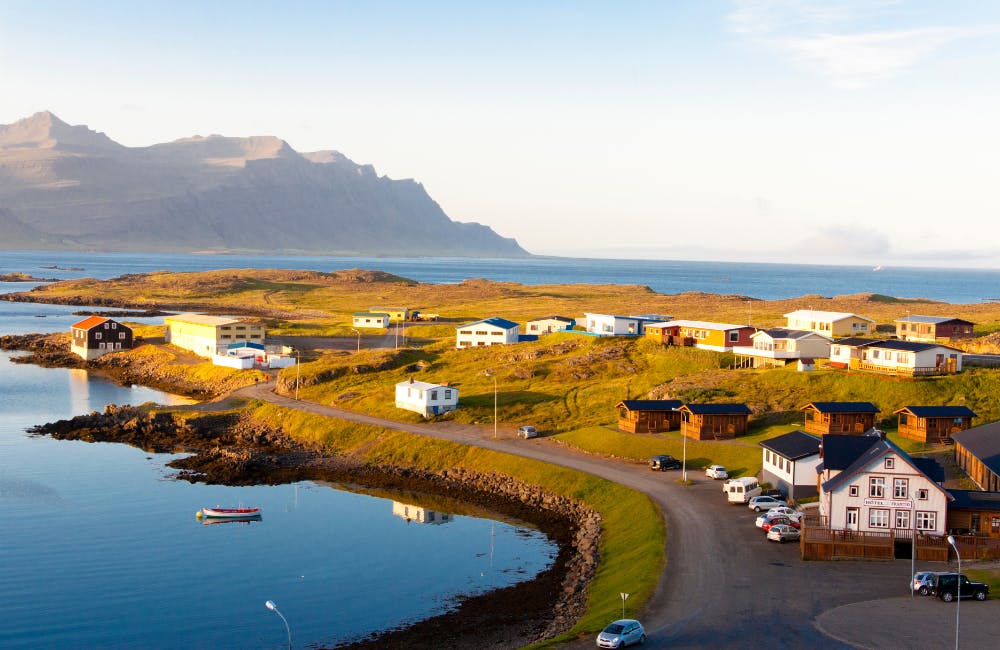
7. Attend a Small Town Festival
Iceland is dotted with small towns that host some entertaining festivals. These festivals give you a unique glimpse into the local culture and traditions, and their experiences are truly unique.
From music and food to dance and community spirit, each festival has its charm and is an excellent opportunity to meet locals and immerse yourself in the Icelandic way of life.
Small-town festival events are held throughout the year.
When planning a trip to Iceland, we recommend checking local schedules to see if any festivals coincide with your visit.
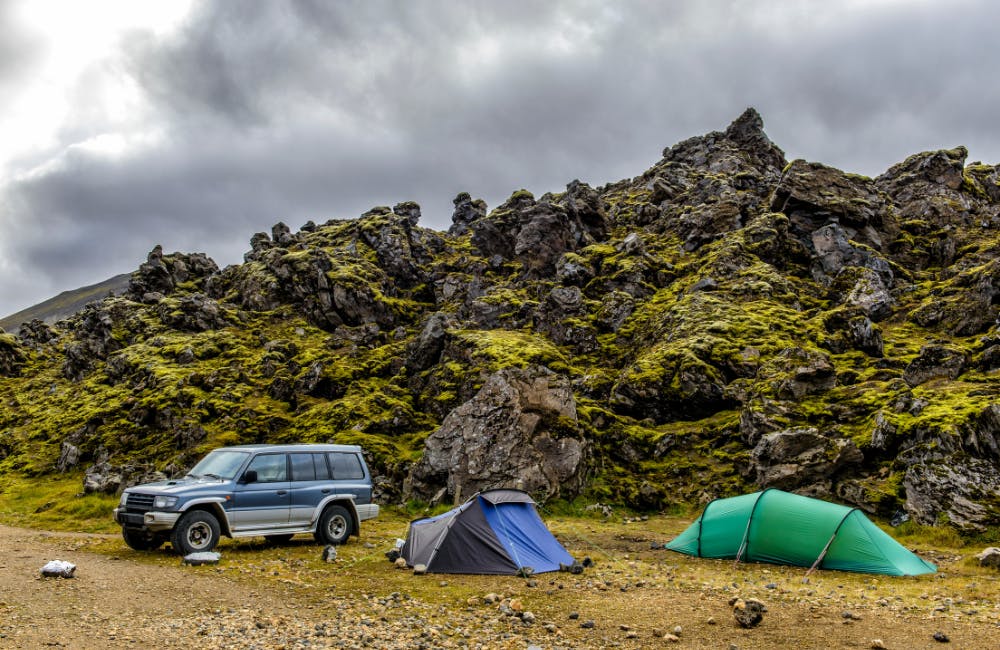
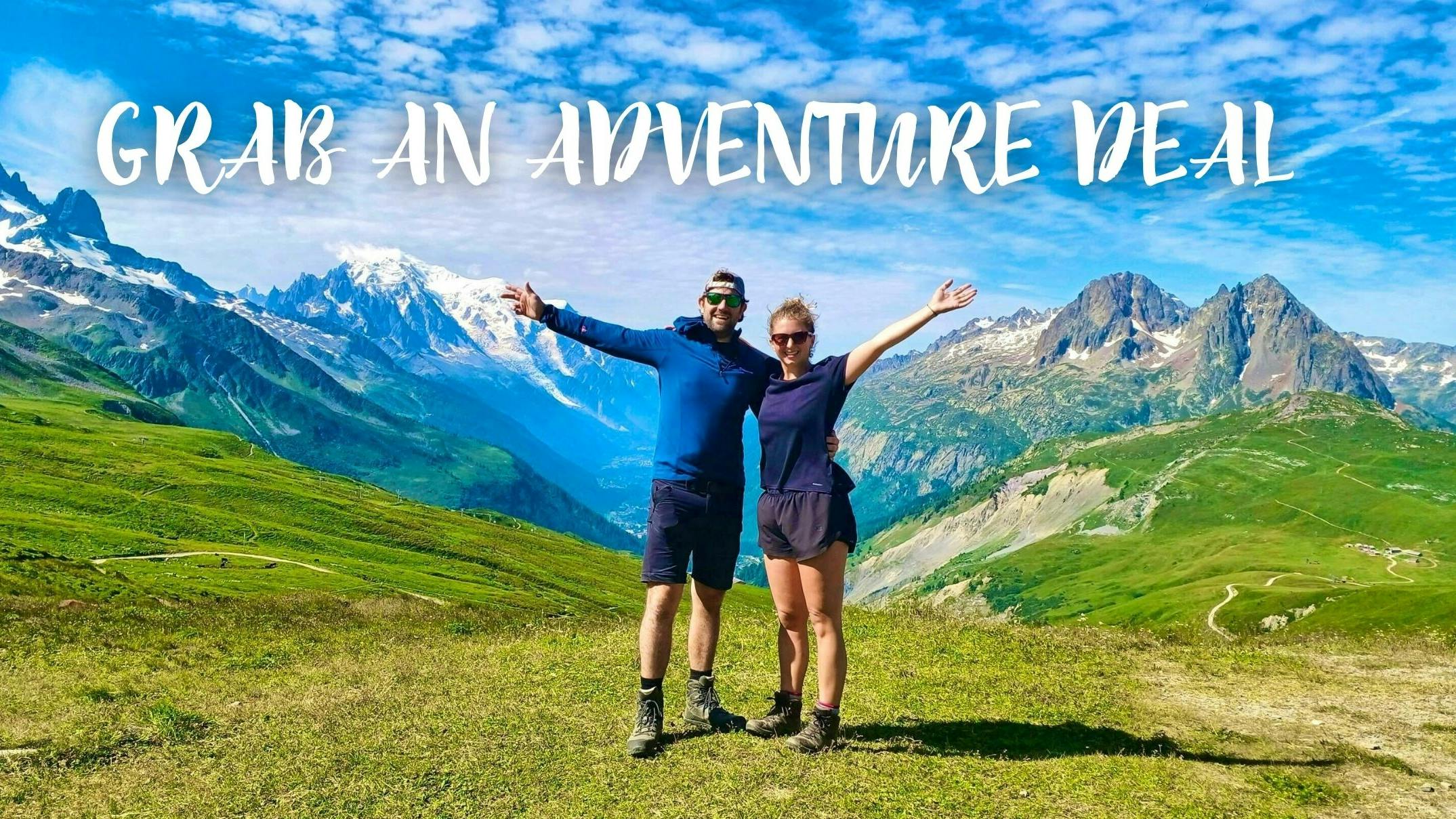
Latest Deals
8. Experience Camping in Iceland
Camping in Iceland is one of the best ways to immerse yourself in the country’s natural beauty.
Most towns and villages have campsites with good basic facilities. These are found nationwide, making it easy for a camping (or even van camping) trip around Iceland.
Wild camping in national parks is strictly prohibited. Respect the environment by leaving no trace and being mindful of fragile vegetation.
If you’re interested in an Icelandic camping adventure, one of our best Iceland travel tips is getting an Iceland camping card.
A camping card gives you access to many campsites across the country for a fixed fee. It can be a great way to save money and discover campsites while you explore the country.
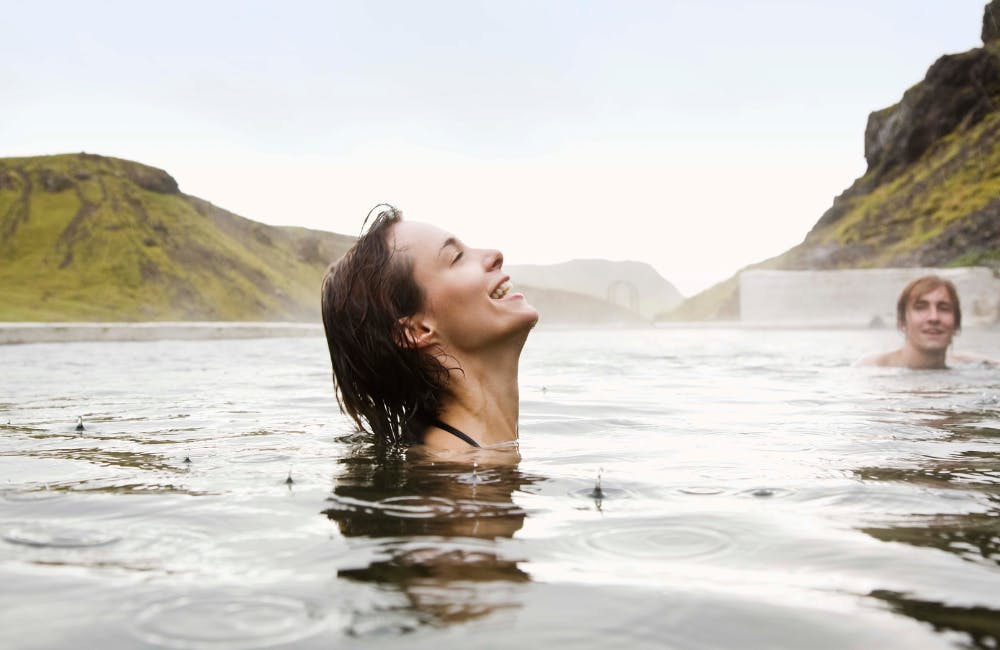
9. Take a Dip in a Natural Hot Spring
Bathing in natural hot springs is a beloved Icelandic tradition, and everyone who visits the country should try it.
Thanks to the many Iceland volcanoes, there are geothermal pools all over the country. They all offer an excellent opportunity for relaxation in Iceland’s unique volcanic landscape.
Some popular spots include the warm river in Reykjadalur and the hot springs in Landmannalaugar.
Many towns also have public swimming pools heated by geothermal energy, which are great places to relax and socialise.
You must always shower before entering any pool to help keep the water clean. Some hot springs are in remote areas, so be prepared for a hike to reach them.
The experience of soaking in a natural hot spring, surrounded by stunning scenery, is unforgettable. Do it in winter when it’s all icy and snowy around you!
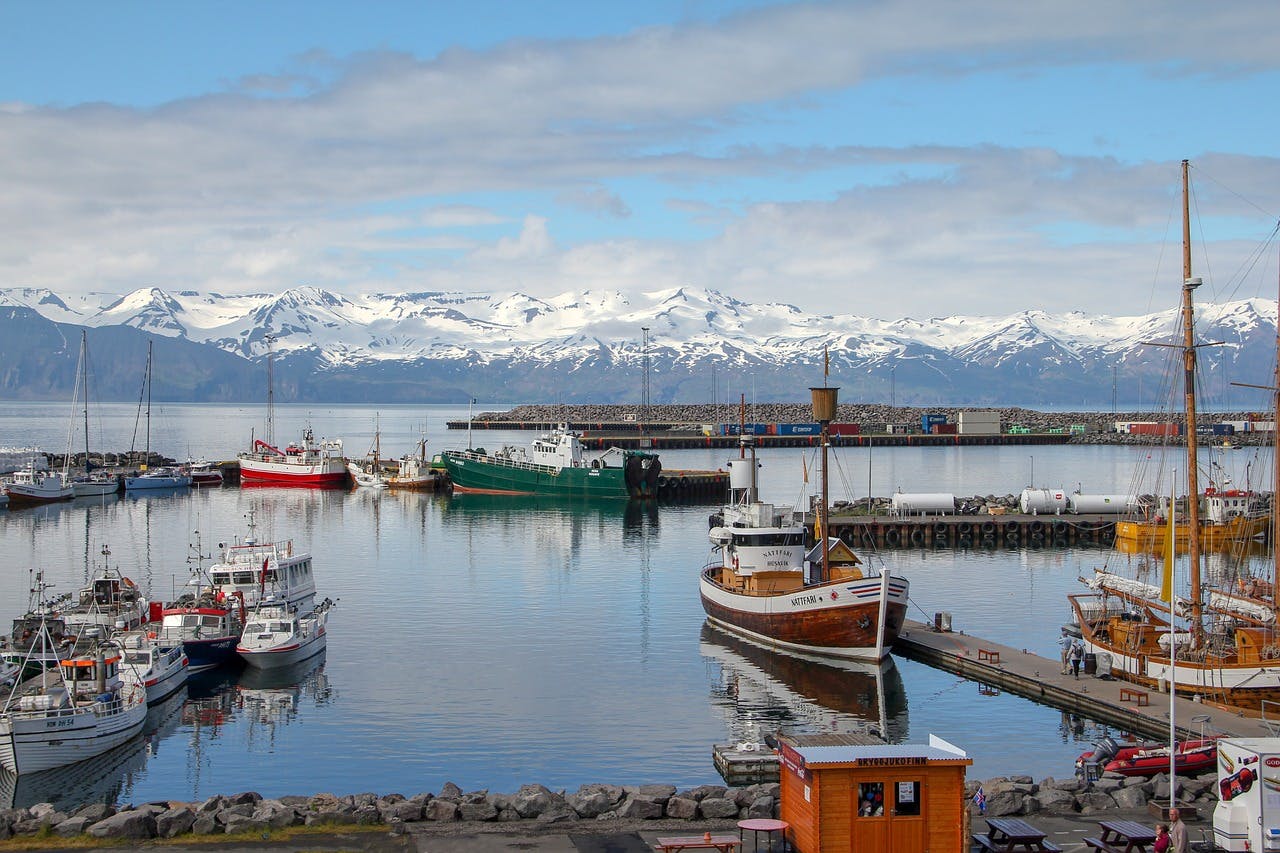
10. Don’t Try to Buy Beer in Supermarkets
Tip 10 might seem funny, but it’s one of those travel tips for Iceland that many people wish they knew before they visited.
Iceland has strict alcohol laws. Beer, wine, and spirits are only sold in state-run stores called Vinbudin.
Supermarkets sell a “near-beer” product, which has no alcohol content.
This arrangement confuses many tourists, who purchase the “near-beer” only to be disappointed later.
If you want alcohol, plan to visit a Vinbudin. These stores are usually open Monday through Saturday and have limited hours, especially in smaller towns.
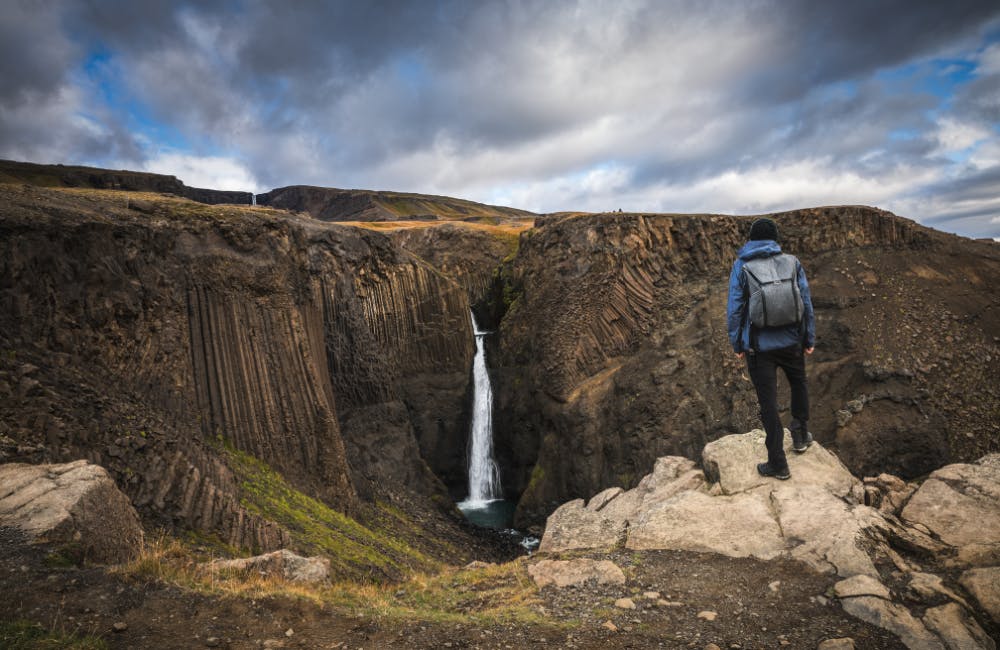
11. Sightseeing Under the Midnight Sun
During the summer, Iceland has 24 hours of daylight, which is unique and allows for endless sightseeing.
Visiting popular sites at night under the midnight sun allows you to avoid crowds and enjoy a more intimate experience.
This can be a strange sensation for anyone not used to it, but we recommend taking advantage of the midnight sun to make the most of your itinerary.
You might also have trouble sleeping in constant daylight, so bringing a sleeping mask is a good idea.
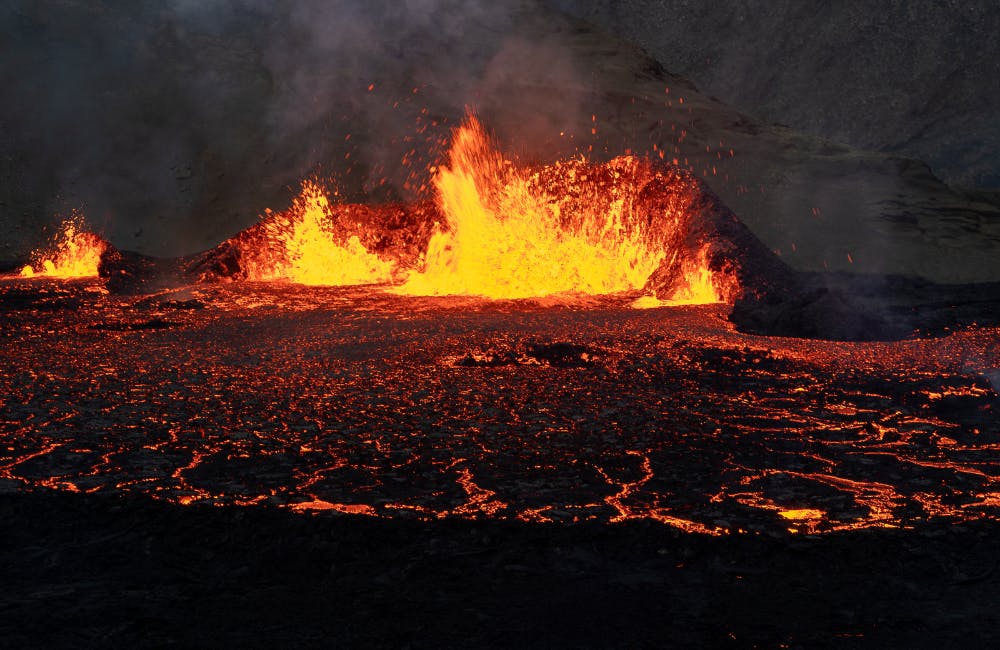
12. Keep Up-to-Date on Iceland’s Volcanic Eruptions
Iceland’s volcanic landscape is a fascinating and occasionally hazardous feature of the country.
The Reykjanes Peninsula has recently experienced a series of volcanic eruptions, which affected areas like Grindavik and temporarily closed the Blue Lagoon.
While these eruptions can be a spectacular sight, they also pose risks.
Roads to affected areas are often closed, and hiking near active volcano sites is prohibited.
Before your trip, check the latest updates from the Icelandic Met Office and Safe Travel Iceland.
You should also follow local guidelines to stay safe.
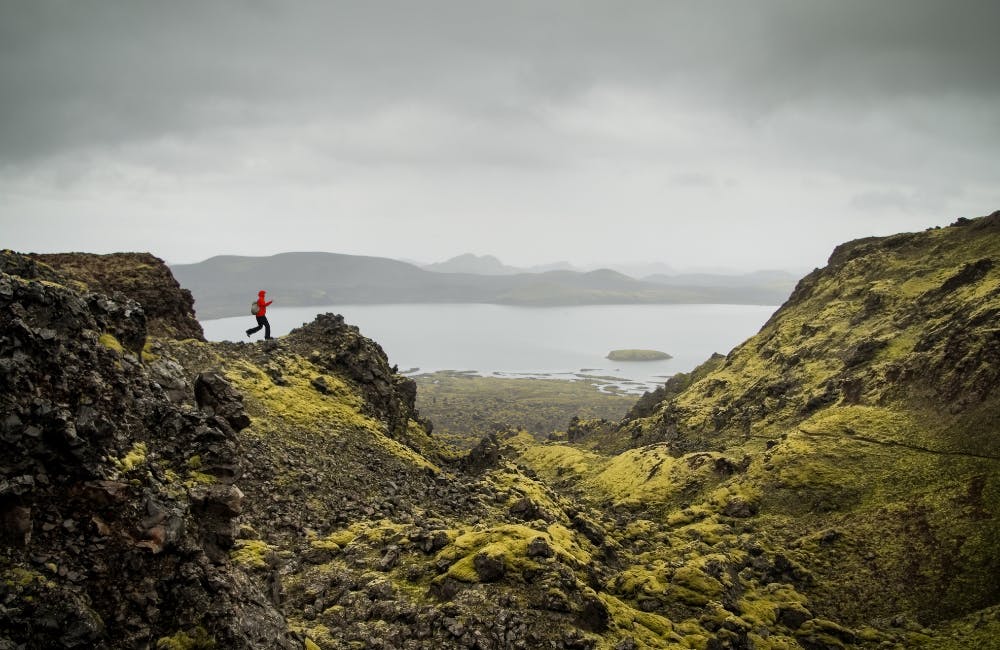
13. Use Common Sense to Stay Safe in the Wild
Solo travel in Iceland is fantastic because Iceland is an incredibly safe country.
However, you do need to be cautious of the wild environment that makes up most of the country.
Iceland’s stunning landscapes can be dangerous if you’re not careful. Many visitors underestimate the dangers and venture onto glaciers without a guide or try to take photos in really dangerous positions.
Remember, safety rails and warning signs are often minimal or nonexistent in Iceland, so you must use common sense wherever you go.
If you see any safety rails or signs, even if they’re very basic, follow them.
Pay attention to the natural environment at all times and always appreciate the power of Icelandic nature.
Wear proper hiking boots and gear when exploring places like the Sólheimajökull glacier or Djúpalónssandur beach.
Always follow local advice and posted signs, and avoid taking unnecessary risks. Iceland’s beauty is best enjoyed safely.
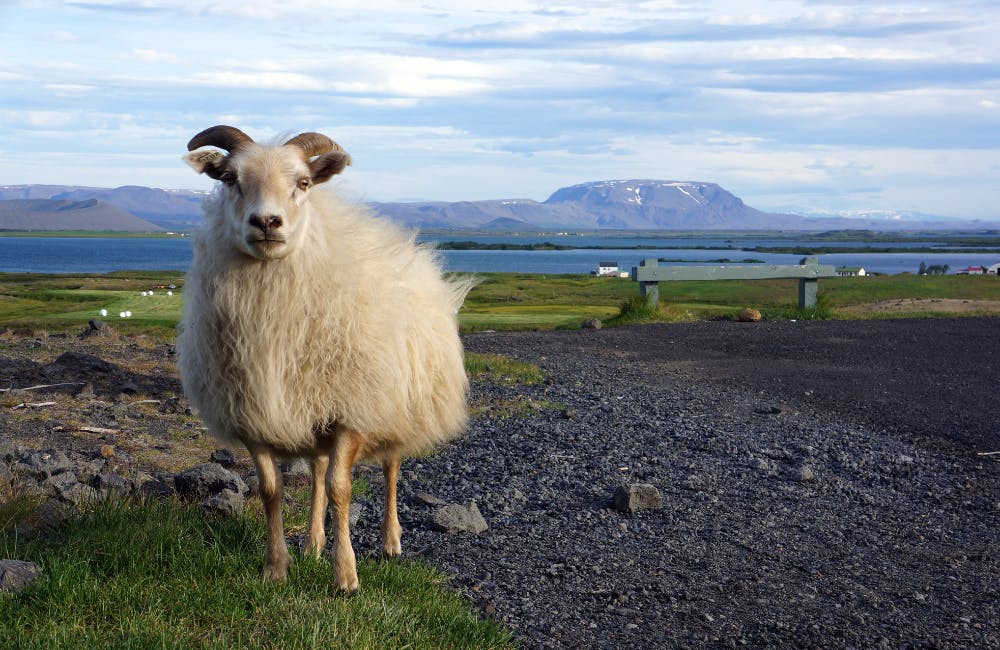
14. Plan Ahead When Hitting the Road
We’ve already mentioned that driving in Iceland offers unparalleled freedom to explore.
But, a safe road trip in Iceland also requires careful planning.
Before setting out, check driving times, road conditions, weather forecasts, and trail requirements.
Websites like the Icelandic Road Administration and Safe Travel Iceland provide some of the best information.
Ensure your itinerary is realistic, factoring in weather changes and travel distances. We recommend adding extra time to each journey to prepare for delays—whether a sheep in the road or a snowstorm.
Always carry enough food, water, and emergency supplies, especially when travelling in remote areas.

15. Don’t Drive Off-Road (And Choose the Right Vehicle)
Speaking of driving around Iceland, here are some more Iceland travel tips you need to remember.
First, off-road driving is illegal in Iceland and can cause severe damage to the fragile environment.
Iceland’s all about the natural beauty and unspoiled nature, so messing this up is a big no-no.
Even with a 4WD, you need to stick to marked roads.
Unauthorised off-road tracks can lead to severe penalties. Plus, they’ll invalidate your rental car insurance.
Second, when you’re driving, always stick to the right kinds of roads for your vehicle.
Iceland’s road network includes a variety of surfaces, from paved highways to rugged F roads accessible only by 4WD vehicles.
Attempting to drive a 2WD on these rough tracks can be dangerous and voids your rental insurance.
Plan your routes according to your vehicle’s capabilities and avoid risky shortcuts. We’re not saying don’t take detours and don’t explore remote areas, but do it wisely.
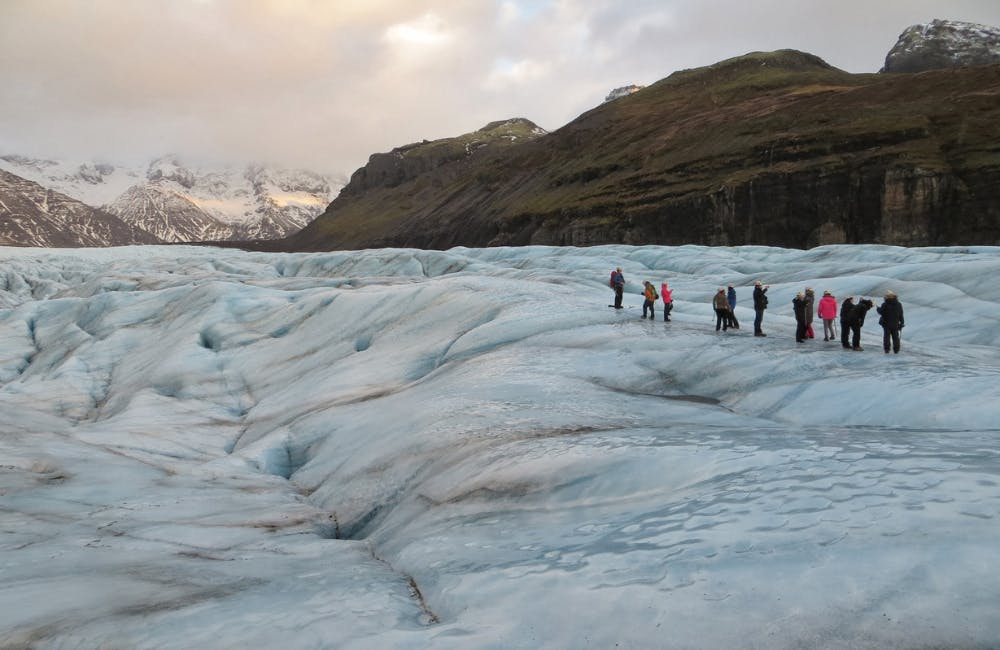
16. Take a Tour of the More Remote or Dangerous Landscapes
Exploring Iceland’s remote and rugged landscapes with expert guidance is best.
Tour operators offer specialised guidance that gives you safe access to hard-to-reach areas.
Whether it’s going kayaking in Iceland, climbing volcanoes, or hiking glaciers and ice caves, don’t attempt these environments alone.
Instead, go with a safe and knowledgeable tour guide. You’ll have a much better experience this way.
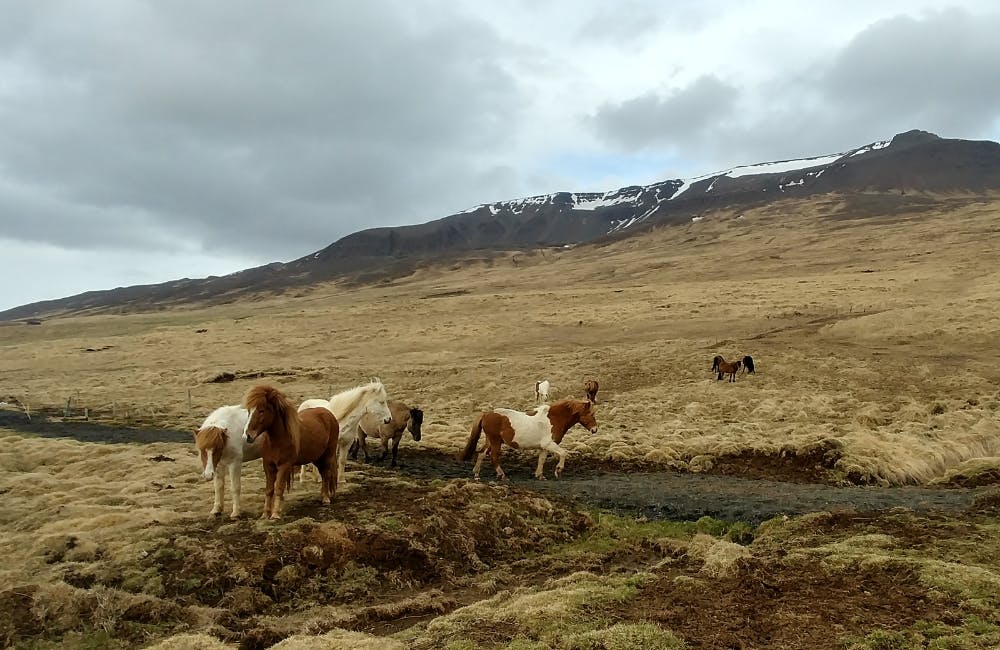
17. Understand the Impact of Tourism on Iceland
Iceland’s growing tourism industry presents both opportunities and challenges for the country.
Popular attractions like Skógafoss and Reynisfjara have seen significant visitor increases, leading to the need for better infrastructure and conservation efforts.
Respect local guidelines, follow marked paths, and avoid overcrowding sensitive areas.
Responsible travel is essential for preserving Iceland’s natural beauty and supporting sustainable tourism initiatives.
So, when it comes to Iceland travel tips, sustainable travel is essential.
Reduce your environmental footprint by avoiding littering, minimising waste, and respecting wildlife and natural habitats wherever you go.
We encourage the use of eco-friendly products and remember to support local businesses.
Responsible travel ensures that Iceland remains a stunning destination for future generations.
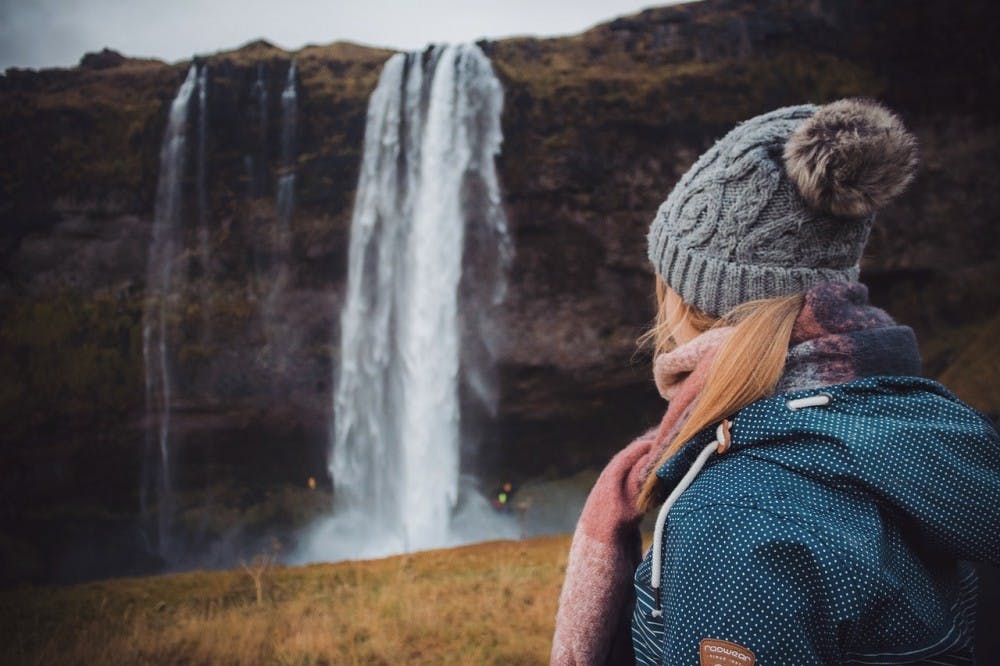
Conclusion
These Iceland travel tips should help you travel more responsibly and safely and, most importantly, enjoy this country as much as possible.
Looking for reputable guided adventures while you’re in Iceland? Check out our top-rated Iceland tours to help you have an unforgettable adventure.
Find your next adventure
Why Skyhook?
Join over 27,000 Skyhook adventurers who've used our platform to book directly with our vetted local guides, at local prices (we never markup).
Expert Local Guides
Experienced local guides, handpicked by us.
Best Prices
Never pay a markup on the local guide's price.
Exclusive Club
Earn loyalty rewards every time you travel.
Great Social Vibes
Small group tours provide a richer experience.
Stellar Feedback
Over 3,000 reviews, average of 4.9/5 stars.









